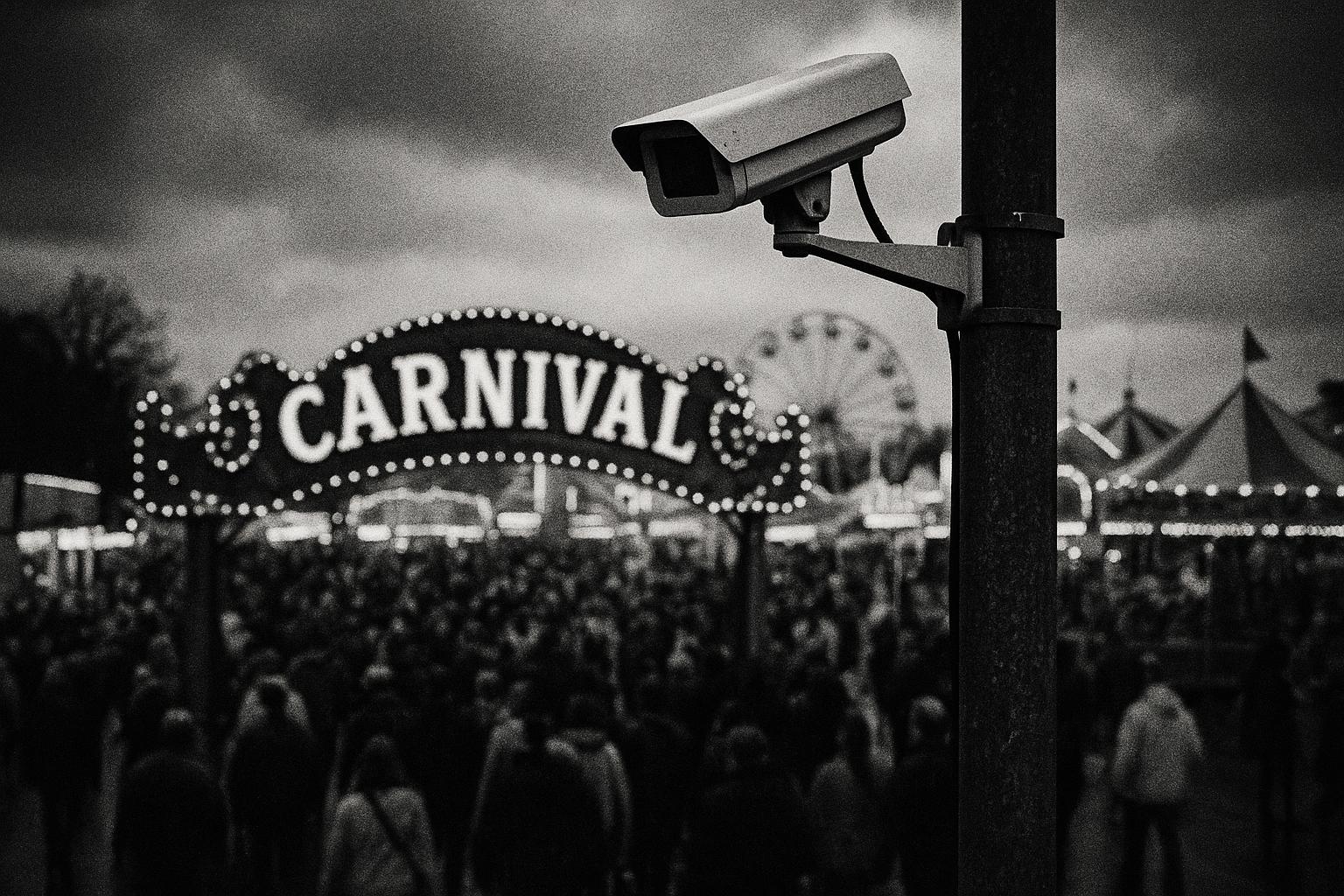The Metropolitan Police has confirmed it will deploy live facial recognition cameras at this year’s Notting Hill Carnival, saying the technology will be used without bias to help locate potentially dangerous individuals during the August bank‑holiday weekend. According to the force’s public briefing, around 7,000 officers and staff will be on duty each day and the cameras will be sited on approaches to and exits from the event, outside the carnival’s formal boundaries, with deployments described as intelligence‑led and intended to deter serious violence. (Metropolitan Police statement)
Civil society groups and campaigners have sharply criticised the decision. An open letter signed by eleven organisations — including Liberty, Runnymede Trust and Big Brother Watch — warned that live facial recognition is a “mass surveillance tool” that treats attendees as potential suspects and is “less accurate for women and people of colour”, arguing there is no clear legal basis for its use at a festival that celebrates the British African‑Caribbean community. Rebecca Vincent, interim director at Big Brother Watch, said she was “deeply disappointed” that the force had chosen to continue with the technology and urged the Met to abandon plans and focus on on‑the‑ground policing instead. (Campaign statements; Big Brother Watch press release)
The force has set out operational safeguards it says limit risks to privacy. The Met says the system will search bespoke watchlists — for example, people recorded as wanted on the Police National Computer, those who are missing and individuals subject to sexual‑harm prevention orders — and that biometric data from non‑matches will be deleted immediately. The force also stresses that camera use will be concentrated on entry and exit points rather than inside the carnival itself. (Metropolitan Police briefing; news reporting)
The decision follows a troubled history of facial recognition trials in London. The Met acknowledges that earlier deployments at the carnival in 2016 and 2017 “did not build public confidence”, and independent reporting has recorded that those trials produced a number of incorrect identifications with no resulting arrests; one high‑profile misidentification has since led to an ongoing legal challenge. The commissioner has argued the algorithm now in use has “significantly improved”, points to independent testing and says the system does not “perform in a way which exhibits bias”, but campaigners dispute those assurances and call for stronger oversight. (Metropolitan Police comments; The Guardian)
The debate over biometric surveillance is not confined to policing. Retail‑facing systems have seen a marked rise in automated alerts: the company Facewatch reported its highest monthly total of suspect alerts in July 2025, sending more than 43,000 alerts to subscriber stores — the equivalent, the company said, of over 10,000 suspects flagged each week. Facewatch’s chief executive, Nick Fisher, described the figures as “a further stark warning that retailers and their employees are facing unprecedented levels of criminal activity.” Privacy campaigners warn that the proliferation of such systems turns members of the public into “walking barcodes” and risks serious harms when mistakes occur. (Industry data; Facewatch statement; campaign commentary)
Critics say the Met’s assurances do not address the deeper legal and accountability questions raised by mass biometric capture. Several organisations that signed the open letter have argued there is no comprehensive statutory framework governing police use of live facial recognition in public settings, and have called for transparency about how watchlists are compiled, independent auditing of algorithms and clearer routes for redress when errors occur. The charities argue resources would be better directed at conventional policing measures that protect vulnerable people without sweeping up the privacy of thousands of innocent festival‑goers. (Civil society statements; campaign press releases)
The Met maintains its position that LFR deployments are a proportionate, intelligence‑led tool intended to protect the public and deter serious offending, while campaigners warn the move could exacerbate distrust between police and the communities the carnival celebrates unless transparency, legal clarity and independent oversight are secured. With a legal challenge still progressing and civil liberties groups pledging continued scrutiny, the dispute over facial recognition at one of London’s largest cultural events looks set to continue into the autumn. (Metropolitan Police briefing; campaign groups; legal reporting)
📌 Reference Map:
##Reference Map:
- Paragraph 1 – [1], [4]
- Paragraph 2 – [1], [5], [6]
- Paragraph 3 – [4], [3]
- Paragraph 4 – [1], [6]
- Paragraph 5 – [1], [7]
- Paragraph 6 – [5], [6]
- Paragraph 7 – [4], [6], [5]
Source: Noah Wire Services
